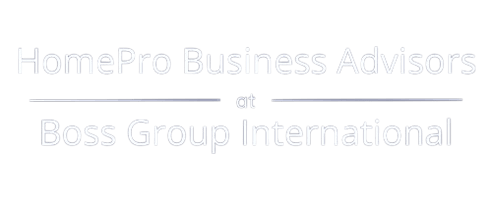Metrics that Matter - HVAC


Metrics That Matter: What HVAC Business Owners Need to Know Before Selling
If you own an HVAC business in Florida and are considering selling, it’s essential to understand that buyers are not just looking at how busy you are. They are evaluating key financial and operational metrics to determine whether your company is profitable, sustainable, and ready to succeed without you.
Buyers want well-run, compliant, and profitable businesses, and focusing on the right metrics before listing can mean the difference between a top-dollar sale and a deal that falls apart.
In this guide, we’ll break down the core metrics buyers focus on when evaluating HVAC companies in Florida and show you how to prepare for a successful sale.
Why Metrics Matter When Selling an HVAC Business
Buyers today are increasingly sophisticated. They rely on hard data, not gut feeling, to determine what your business is worth.
Whether you're ready to sell this year or thinking ahead for the future, knowing what buyers are really looking at helps you focus on what will truly drive value.
For Florida HVAC business owners, licensing and compliance are non-negotiable. You must have the proper Certified Air Conditioning Contractor license (Class A or B) and required insurance in place, or risk losing buyers altogether.
Florida’s HVAC Market: Why Buyers Are Interested
Florida is one of the most attractive markets for HVAC businesses because of:
Year-round demand due to hot and humid weather.
Aging residential and commercial systems needing repair, replacement, and maintenance.
New construction growth across residential and commercial sectors.
Who’s Buying HVAC Companies?
Private equity firms consolidating home services businesses.
Strategic buyers (larger HVAC firms expanding geographically).
Owner-operators - licensed contractors looking for a turnkey opportunity.
What Buyers Care About:
Steady, recurring revenue (especially maintenance contracts).
Clean, compliant operations.
Profit margins and efficiency.
Stable, licensed workforce.
Strong brand and reputation in the local community.
Top Metrics Buyers Analyze
1. Revenue and Service Mix
Definition: Total revenue broken down by type: installations, service and repair, maintenance contracts, residential vs. commercial.
Why It Matters: A diversified service mix indicates stability and reduces risk.
What Good Looks Like:
Balanced mix of installations, service, and recurring maintenance.
Combination of residential and commercial clients.
What’s Concerning:
Overreliance on new system installations - vulnerable to market slowdowns.
No recurring revenue - all one-off jobs.
2. Gross Profit Margins
Definition: Revenue minus direct costs (equipment, materials, labor).
Why It Matters: Margins show how well the business controls costs and prices jobs.
Good Margin Range: Typically 35-50%, depending on the type of work.
What Good Looks Like:
Stable or growing margins over time.
Effective job costing and efficient technician performance.
What’s Concerning:
Declining margins from underpricing or cost overruns.
Heavy discounting to win jobs, eroding profitability.
3. Recurring Maintenance Contracts
Definition: Annual or semi-annual service agreements with residential or commercial clients.
Why It Matters: Predictable revenue and a loyal customer base make a business more attractive.
What Good Looks Like:
Recurring contracts account for 20-40% of total revenue.
Steady base of long-term clients.
What’s Concerning:
No contracts - reliance on unpredictable one-time work.
4. Customer Concentration
Definition: Percentage of revenue generated from top customers.
Why It Matters: A diversified customer base reduces risk.
What Good Looks Like:
No single client generating more than 10-15% of revenue.
What’s Concerning:
Heavy dependence on a few large clients - risky if they leave.
5. Licensing & Compliance (Florida-Specific)
Definition: Certified Air Conditioning Contractor license (Class A or B), proper insurance, regulatory compliance.
Why It Matters: Buyers won’t move forward if your business isn’t fully licensed and insured.
What Good Looks Like:
Active Florida HVAC license (Class A for unlimited capacity, Class B for restricted).
Proper workers’ comp and liability insurance.
All work completed under required permits.
What’s Concerning:
Expired licenses.
Non-permitted work or unlicensed subcontractors.
Lacking mandatory insurance coverage.
6. Workforce and Technicians
Definition: Number and quality of licensed HVAC technicians and apprentices.
Why It Matters: In a tight labor market, buyers value a trained, stable team.
What Good Looks Like:
Loyal, licensed technicians, low turnover.
Established training and retention programs.
What’s Concerning:
High employee turnover.
Over-reliance on subcontractors.
Operational Elements That Impact Value
Standard Operating Procedures (SOPs) for estimating, job management, dispatching, and customer service.
Software and technology - FieldEdge, ServiceTitan, Housecall Pro for scheduling and CRM.
Accurate, organized financial records - clear revenue/expense tracking, reviewed by a CPA.
Fleet and equipment - reliable, well-maintained service vehicles and tools.
Proper insurance meeting all Florida regulatory standards.
Strong online presence - high ratings on Google, Yelp, BBB.
Common Mistakes Sellers Make in the HVAC Industry
Letting licenses lapse - deal killer in Florida.
Messy or incomplete books - makes due diligence impossible.
Too much reliance on installations only - no recurring income.
Weak or unstable workforce - buyers fear staff won’t stay post-sale.
No written SOPs - makes business dependent on owner.
Neglecting online reputation - poor reviews hurt valuation.
Actionable Tips to Improve Key Metrics Before Listing
Diversify services - add or grow repair/maintenance lines if too reliant on installs.
Improve profit margins - review job costing, reduce material waste, improve technician productivity.
Secure more maintenance contracts - focus on long-term recurring revenue.
Ensure licensing compliance - verify Class A or B license is active, check insurance.
Invest in technician retention and training - reduce turnover, maintain quality workforce.
Adopt modern field service software - improve efficiency, customer experience.
Organize and clean up financials - separate business/personal expenses, CPA review.
Manage and boost reputation - encourage happy customers to leave reviews, address negatives proactively.
Conclusion: How to Maximize Your HVAC Business Value Before Selling
Florida HVAC businesses can command high multiples and strong offers, but only when they are well-prepared and positioned properly.
Focusing on recurring revenue, profitability, compliance, and workforce stability can dramatically improve your valuation and make your business more appealing to serious buyers.
Whether you’re ready to sell today or planning for the future, addressing these key metrics now ensures you’ll be in the best position when the time is right.
Thinking of selling your Florida HVAC business?
Contact us for a confidential discussion and learn how to maximize the value of your HVAC company.
